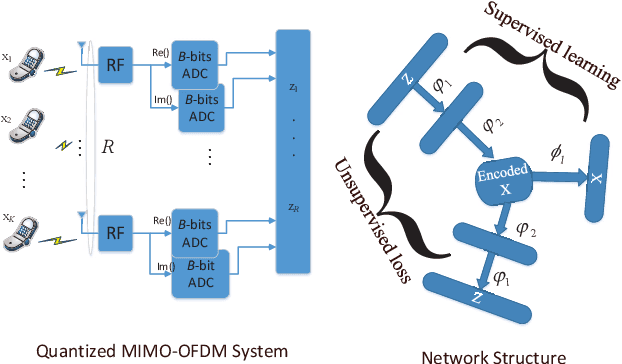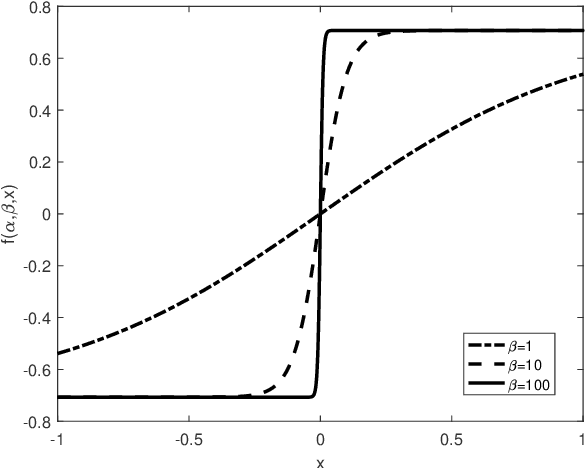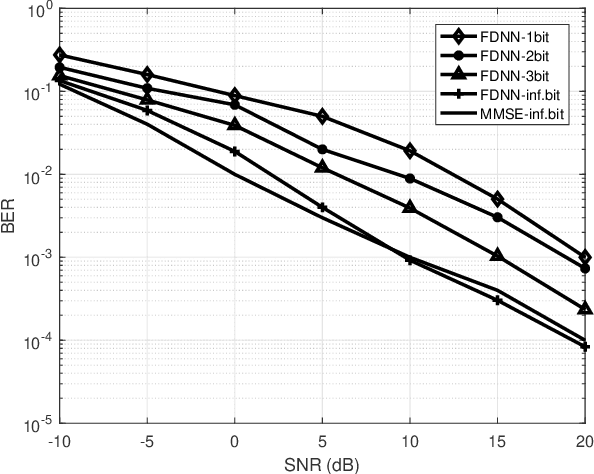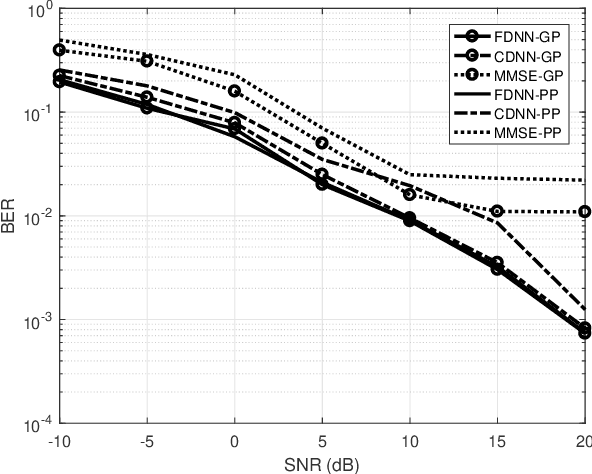LEMO: Learn to Equalize for MIMO-OFDM Systems with Low-Resolution ADCs
Paper and Code
May 14, 2019



This paper develops a new deep neural network optimized equalization framework for massive multiple input multiple output orthogonal frequency division multiplexing (MIMO-OFDM) systems that employ low-resolution analog-to-digital converters (ADCs) at the base station (BS). The use of low-resolution ADCs could largely reduce hardware complexity and circuit power consumption, however, makes the channel station information almost blind to the BS, hence causing difficulty in solving the equalization problem. In this paper, we consider a supervised learning architecture, where the goal is to learn a representative function that can predict the targets (constellation points) from the inputs (outputs of the low-resolution ADCs) based on the labeled training data (pilot signals). Specially, our main contributions are two-fold: 1) First, we design a new activation function, whose outputs are close to the constellation points when the parameters are finally optimized, to help us fully exploit the stochastic gradient descent method for the discrete optimization problem. 2) Second, an unsupervised loss is designed and then added to the optimization objective, aiming to enhance the representation ability (so-called generalization). The experimental results reveal that the proposed equalizer is robust to different channel taps (i.e., Gaussian, and Poisson), significantly outperforms the linearized MMSE equalizer, and shows potential for pilot saving.
 Add to Chrome
Add to Chrome Add to Firefox
Add to Firefox Add to Edge
Add to Edge